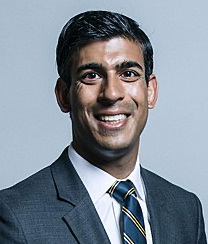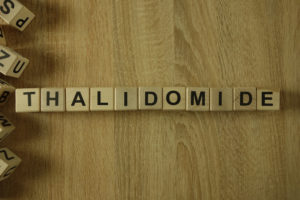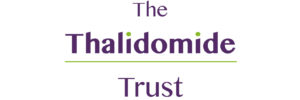History of Thalidomide
1954
Thalidomide is created by Chemie Grunenthal, a German pharmaceutical company.
1956
25 December: The first thalidomide-affected baby is born in Germany on to a Chemie Grunenthal employee.
1958
In April, thalidomide is licensed for distribution in the UK, by Distillers Company (Biochemicals) Ltd (‘Distillers’), under the brand name Distaval. The sedative was promoted as a ‘wonder drug’ to treat a range of conditions including headaches, insomnia and morning sickness in pregnant women – adverts emphasised the drug’s safety using phrases such as ‘non-toxic’ and ‘no known toxicity’.
1961
A letter is published in The Lancet from an Australian doctor, William McBride, for the first time publicly making the link between thalidomide and birth defects.
26 November
The drug is formally withdrawn by Chemie Grunenthal in Germany.
2 December
Distillers, the UK distributor, follows suit.
1962
The Thalidomide Society is established in the UK by a group of parents of babies affected by thalidomide. Writs are issues by families of 62 thalidomide-affected babies born in the UK (within months of the deadline of 3 years from conception) to secure compensation.
1968
A sum equivalent to 40% of assessed damages is awarded to the 62 thalidomide-affected children from Distillers – the result of an initial (infant) settlement, following a legal battle led by their families with little or no media support. Chemie Grunenthal is brought to trial in Germany charged with intent to commit bodily harm and involuntary manslaughter.
1970
The trial against Chemie Grunenthal is brought to a premature end by the German government stating that the trial was ‘not in the public interest’.
1972
A Sunday Times-led campaign is launched in the UK to secure a substantial level of compensation for thalidomide-affected children in the UK.
1973
Building on the 1968 settlement, a final settlement is agreed by Distillers. This includes a lump-sum payment for a further 367 children affected by thalidomide in the UK (on the same basis as the initial 62) together with the establishment of the Thalidomide Trust (into which Distillers paid £20 million) to provide ‘support and assistance’ – including annual grants – to all thalidomide survivors.
2004
Following a campaign led by the Thalidomide Trust’s National Advisory Council (NAC), in July the Government announces that compensation payments made to UK thalidomide survivors will be tax-free.
2005
Diageo – formed in 1997 by a merger between Grand Metropolitan and Guinness (who took over Distillers in 1990) – agrees an increased financial settlement with the Thalidomide Trust.
2010
In January the UK Government announces that it will provide a Health Grant to all thalidomide survivors in the UK to help meet the increased health needs caused by their thalidomide damage, initially for a three year pilot period.
2012
The Health Departments in all four nations of the UK agree to pay the Health Grant for a ten year period until 2022.
2021
Rishi Sunak, Chanceller of the Exchequer, announces a lifetime commitment to Health Grant funding for beneficiaries living in England.
2022
The governments in Scotland and Wales also commit to lifetime Health Grant funding for beneficiaries of the Thalidomide Trust.
Thalidomide Campaigns News Archives

News of campaigns to fight for support and compensation for thalidomide affected individuals




